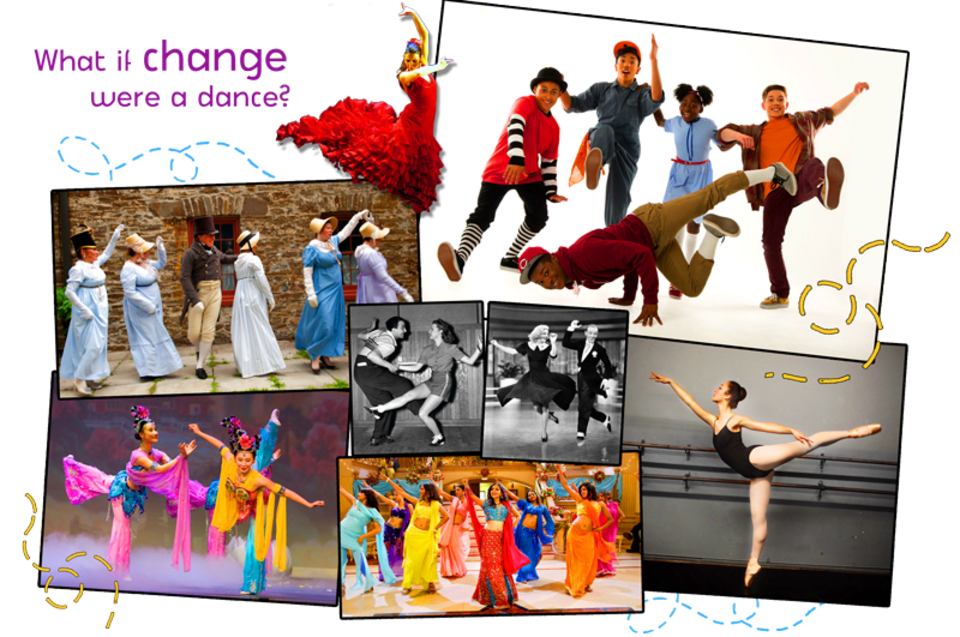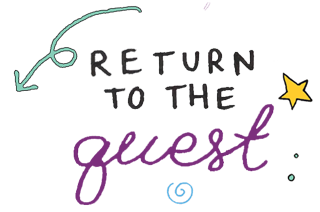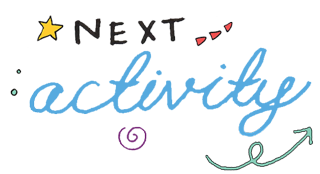
The rhythm of change
This activity is reproduced with permission from the board game "Kookception: Philo at Play" created by our community partner Brila as part of its philocreation approach.
...
| Objective: To expand your concept of change by stretching it in all directions through fun thinking mini-missions! |
Duration: 15 to 45 minutes
Material:
- Sheets of paper and pen
- Coloured pencils and markers
- Your imagination
Instructions:
Mission 1: Define the concept. Imagine a very curious alien who wants to understand the human world, but who doesn't have the same concepts on their planet. How would you explain change to them by giving a definition of the concept and examples from planet Earth? Keep track of all your ideas because they will be useful for the following activities, like the Philosophical Picnic.
Mission 2: Imagine the concept. If the concept of change were a living creature, what would it look like and why? Close your eyes and visualize how it would act and speak, also thinking about its attitude and life plans. Then imagine that the concept of change has a secret guilty pleasure it doesn’t want anyone to know about—that is, something it really likes or enjoys but might find a bit embarrassing. Is it a song, a movie, a food, a game or a celebrity? What is that secret thing that would make the concept of change shriek out, “Okay, I admit it! I love _______,” then dish out all the details? And why does change like it so much?
Mission 3: Compare the concept. It’s sometimes by making comparisons that you can discover new ideas! In this game of wacky metaphors, your task is to make a connection between the concept and something completely different: If the concept of change were a dance move, what kind of move would it be and why? Describe the dance move as if you were a choreographer showing the steps. What is the exact sequence of movements? Do speed and rhythm matter? What about style—is it more about ballet elegance or hip hop swag? You can even try out the dance move, and see if others can guess what concept you’re representing… and join in the boogie!
...
Bonus: Are you still overflowing with ideas? Then imagine that the concept of change is offered the chance to host its very own TV show! What kind of show would change want to create and why? What would be the show’s purpose, audience and format? What about the title and wacky tagline? Imagine the pilot episode: what happens and how do the spectators react. Would you want to watch the show? What might we learn from a show hosted by the concept of change? |

| Tricks for tots: Do you know the game “I spy,” where you have to describe an object you’re seeing for others to guess? What if we changed it to help us understand… change! Let’s see if proof of change is hiding everywhere! Stand in one spot in your room and look for things that have changed somehow. Maybe they look different than they used to before? Maybe you use them in new ways? Maybe they don’t mean the same thing to you now? Once you have some objects in mind, invite a friend or family member to play your version of the guessing game: “I spy with my little eye something that has changed by _______.” Give them just a little hint of how the object has changed to see if they can figure it out! Once you’re done playing, see if you can find changes in every single object in your room. Has anything not changed at all? Is that even possible? Why or why not? |
| Tips for teens: In metaphysics, the concept of change is often explored through the age-old thought experiment of the ship of Theseus. Supposedly, after years of being kept as a museum piece, the great vessel had to have its rotting parts replaced—and bit by bit, over time, every part was changed for a new one in an effort to preserve it. But is this restored ship the same as the original? Or did small but continuous change across years turn it into something altogether different? Many philosophers have experimented with this idea by applying it to the human self, in order to actively wonder about what makes us the same individuals over time. Test it out: Find something representative of who you were as a kid (a photo, a diary entry, a drawing you made) then compare it to something you feel represents you today. If your appearance, feelings or abilities have changed since you were little, are you still the same person now? Can you change but also stay the same? Why or why not? |
Share your creative reflections by sending them via email.
Include photos of your projects and notes of your thoughts, as well as your first name and your age!


